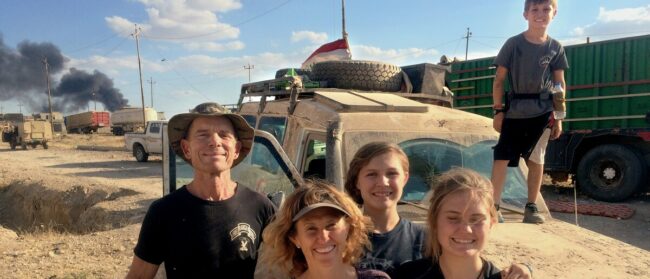The twin suicide bombings of 24 August are the latest in a long list of atrocities carried out in parts of the Philippines home to a revolving door of unrest. They shed light on deeply rooted and widespread troubles driven by Muslim militants, separatists, and indigenous groups, to name a few.
In the worst extremist attack the Philippines has faced this year, 14 were killed and at least 75 injured when the first bomb exploded in front of two parked army trucks. Their personnel were helping local municipal officers at a Covid-19 humanitarian station in Jolo, the main town in Sulu Province.
Less than an hour later, a second explosive detonated as a woman approached soldiers guarding a Roman Catholic church. The suicide bomber’s device killed herself, a soldier, and a police commando and injured many others. A third unexploded bomb was also found in a public market putting the city under immediate lockdown. It is widely accepted that this was orchestrated by Abu Sayyaf, a Muslim militant group with pledged allegiance to IS, for whom Jolo Island is a stronghold.
This was not the first time a pandemic-related location was targeted. Targeting military personnel also wasn’t novel. In May this year, military personnel in mainland town Datu Hoffer Ampatuan were fired upon as they accompanied the local interagency task force dealing with the pandemic. As the Philippines grapples with the highest number of Covid-19 cases in Southeast Asia and a suite of other complex and controversial international and domestic challenges, President Duterte’s administration is already under heavy pressure and criticism, with deadly twin bombings only adding fuel to the fire.
Martial law had presented a window of opportunity for federal forces to ‘find, fix and finish’ groups like Abu Sayyaf, the communist New People’s Army and Bangsamoro Islamic Freedom Fighters
Contentiously, August’s attack momentarily reignited the discussion around (re)imposing martial law to the affected Province in an attempt to control the violence, protect locals and ‘return it to normalcy’. Martial law was lifted just last year after being imposed for two and a half years across Mindanao in response to the 2017 Marawi siege, considered Duterte’s worst security crisis.
Martial law had presented a window of opportunity for federal forces to ‘find, fix and finish’ groups like Abu Sayyaf, the communist New People’s Army and Bangsamoro Islamic Freedom Fighters. The Armed Forces of the Philippines hoped their presence under martial law would disable groups from reorganising attacks. However, bombings and other attacks have continued, including the deadly cathedral bombing in Jolo in January 2019, killing more than 20.
Whilst influential military personnel argued for the reimposition of martial law in Sulu Province, it has been scrapped as a worthy option based on the last round’s failure to eliminate the groups, and because further investigation is needed into the incident, as well as the role of the relatively new Anti-Terror Law enforced nationally. Given the attacks happened at a politically charged time and targeted military personnel, it’s possible they served as revenge killings for relatives killed in military operations, reflecting Sulu’s hostile relationship with the military and ongoing pain endured thanks to Duterte’s all-out war against extremists. Martial law would therefore be an unwise move.
Adding to the complexities, one of the two female suicide bombers was a teenager, reminiscent of the tactic employed in Indonesia’s May 2018 Surabaya attacks in which three families (including 10 children) blew themselves up outside three churches and a police station. Moreover, it’s believed that one of these bombers was Indonesian.
Regional cooperation on counter-terrorism, built on trust, has never been more vital. Whilst ASEAN’s 2007 Convention on Counter-Terrorism ambitiously strives towards effective border control and promotes capacity-building, inter-faith dialogue, intelligence sharing and cross-border cooperation, terrorism in Southeast Asia is enduring and resilient.
Since 2013, 130 of 520 arrested terror suspects in Malaysia were foreigners from over 20 countries, mostly from neighbouring Philippines and Indonesia. The proximity of Malaysia’s Sabah Province to the troubled Sulu Archipelago emphasises the geographical challenges in restricting the movement of fighters between nations. Although effective border control is crucial, it is but one part of a complex web of factors to consider in addressing the historic and contemporary struggles within and between these nations. Authorities have been criticised for focussing on tactics and operations instead of strategy, enabling these groups to adapt and thrive in spite of counter-terrorism efforts.
Duterte’s July 2019 move to authorise the establishment of the Bangsamoro Autonomous Region in Muslim Mindanao (BARMM) signifies not only a crucial step towards a political solution to the chronic conflict in Mindanao, but also an opportunity to more cohesively address separatist movements, poverty, and counter-terrorism.
As Australia seeks to assist in humanitarian and development efforts, it must balance its support to BARMM and the Philippine government to not only assist with counter-terrorism efforts, but with broader capabilities in community policing, negotiation and conflict-resolution training with the multiple authorities active in the region.
Time is of the essence: the economic fallout from the pandemic is opening opportunities for recruitment to these groups. Widespread fear and anxiety have enabled a thriving weapons trade across Mindanao and experts warn that globally attacks are being planned in anticipation for the post-pandemic period.
Last month’s bombings in Jolo serve as a wake-up call, reminding the region of its unfinished quest to drive out violence and extremism, and the work still to be done in ensuring a safer and more humane future for all.
Rebekah Baynard-Smith is the Indo-Pacific Fellow for Young Australians in International Affairs. This article was originally published on the Young Australians in International Affairs blog.


